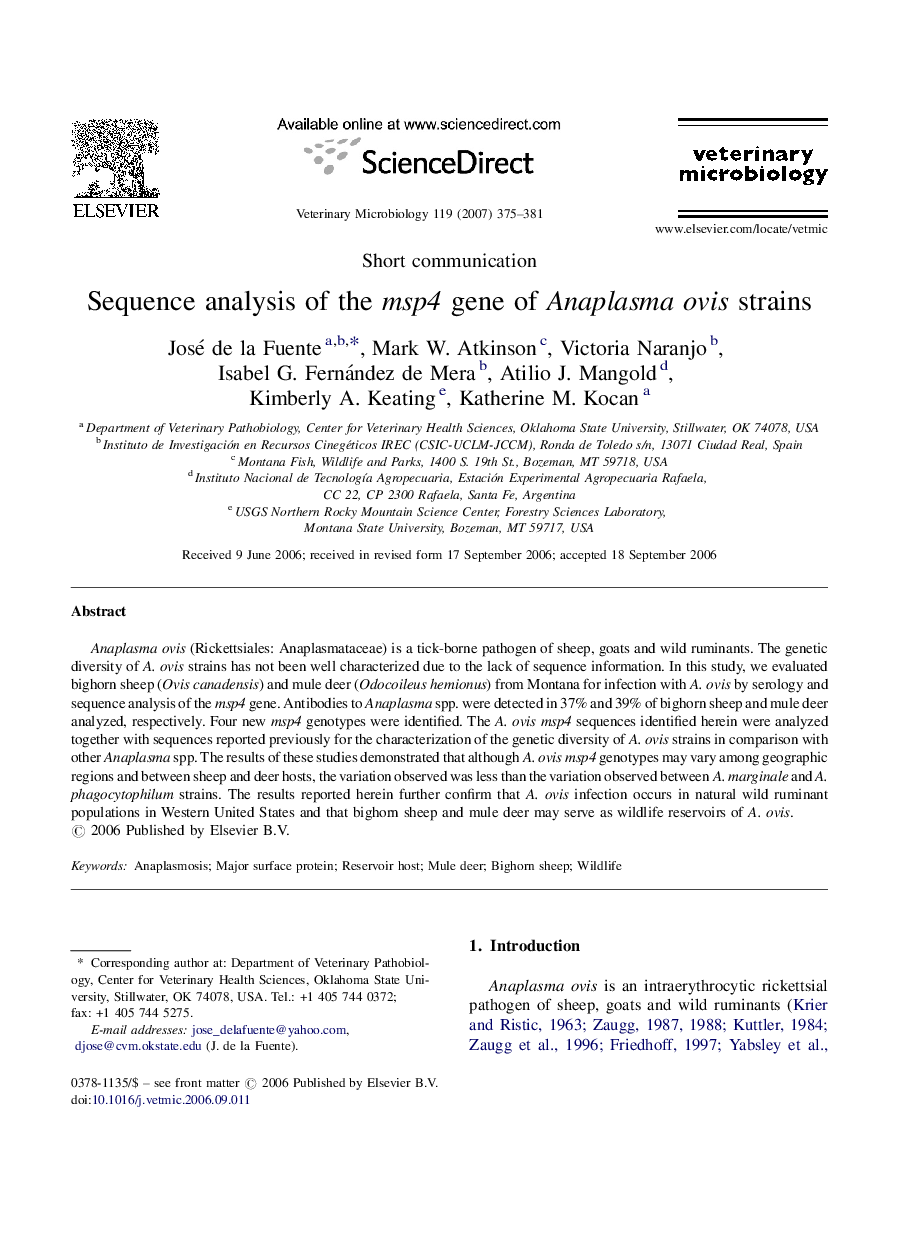| Article ID | Journal | Published Year | Pages | File Type |
|---|---|---|---|---|
| 2469429 | Veterinary Microbiology | 2007 | 7 Pages |
Anaplasma ovis (Rickettsiales: Anaplasmataceae) is a tick-borne pathogen of sheep, goats and wild ruminants. The genetic diversity of A. ovis strains has not been well characterized due to the lack of sequence information. In this study, we evaluated bighorn sheep (Ovis canadensis) and mule deer (Odocoileus hemionus) from Montana for infection with A. ovis by serology and sequence analysis of the msp4 gene. Antibodies to Anaplasma spp. were detected in 37% and 39% of bighorn sheep and mule deer analyzed, respectively. Four new msp4 genotypes were identified. The A. ovismsp4 sequences identified herein were analyzed together with sequences reported previously for the characterization of the genetic diversity of A. ovis strains in comparison with other Anaplasma spp. The results of these studies demonstrated that although A. ovismsp4 genotypes may vary among geographic regions and between sheep and deer hosts, the variation observed was less than the variation observed between A. marginale and A. phagocytophilum strains. The results reported herein further confirm that A. ovis infection occurs in natural wild ruminant populations in Western United States and that bighorn sheep and mule deer may serve as wildlife reservoirs of A. ovis.
